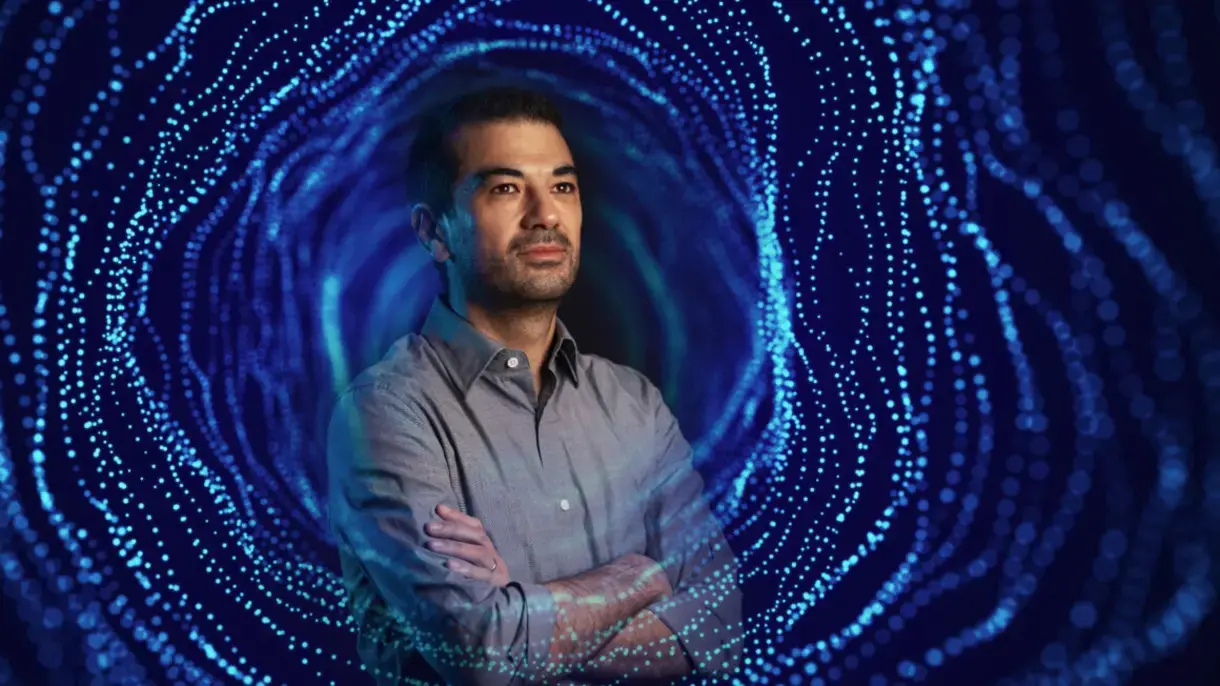Physics
Areas of Study
A physics education at Holy Cross starts with a pair of introductory physics courses taught in a format that integrates lab, lecture and problem solving components into a single interactive learning environment. These courses are capped at 28 students, while later courses in the physics major are even smaller, ranging from about 6 to about 20 students. These small classes foster a strong student community and allow professors and students to develop a close connection.
The physics courses beyond the introductory level provide students with a thorough foundational physics knowledge and allow students to investigate areas of physics that are of particular interest to them, from electronics to astrophysics to quantum computing. Pursuing a physics major provides students with problem solving and critical thinking skills, and with computational and mathematical skills. The major also gives students the opportunity to develop their communication skills, to work in groups as well as independently and to engage in projects which foster independence and creativity.
Requirements
Eight required physics lecture courses (PHYS 115, 116, 221, 223, 342, 344, 351, 353) + one required physics lab (PHYS 225) + 3 electives, including at least 1 lab and at least 1 lecture, 3 required Math courses (MATH 135, 136, 241).
3 required physics lecture courses (PHYS 115, 116, 223) + 3 additional physics courses, 2 required Math courses (MATH 135, 136).
Meet Your Department Chair

Opportunities
Summer Research Program
Holy Cross maintains a robust summer research program which provides students nine weeks of campus-based research under the direction of a faculty member. For an overview of faculty research topics in the department, please visit our faculty directory.
Women in Physics
The Holy Cross Women in Physics group provides support, mentorship and career development opportunities to its members. The group consists of students, alumni, and tenure-track and visiting faculty in the Holy Cross physics department. WiP, as the group is affectionately known, hosts monthly events, including liquid nitrogen ice cream/pizza socials, rocket launches, astronomy nights, talks and presentations from invited guests, workshops on tackling exams and applying to graduate schools. WiP cohosts annual college events like the Women in Science day in association with the other Women in Science groups on campus and organizes and funds its members to participate in the annual Conference for Undergraduate Women in Physics hosted by the American Physical Society.
Graduate Engineering Programs
The 3-2 Program in Engineering at Columbia University and the Collaborative Accelerates Master’s Program with Worcester Polytechnic Institute provides the opportunity to combine the study of statistics with training in engineering
Workshop Tutors
Students may work as tutors in department workshops, furthering their own understanding of subject matter through explanation and education. Tutors are chosen by the department based on academic and interpersonal skills.
Teacher Education Program
The Teacher Education Program prepares undergraduate students to become highly effective, reflective, justice-seeking educators. The program leads to an initial license in Massachusetts at the secondary or middle school level.
Navy ROTC With a Physics Major
An education in physics dovetails well with the College’s Naval ROTC program, and each year physics majors and minors take part in this program.
Nugent Gold Medal
The Nugent memorial medal was founded in the early 1900s by Rev. Edward Evans Seagrave in memoriam of John F. Nugent 1893. It is presented to students who have shown excellence in physics at Holy Cross. The award is usually made to a single student each year, but occasionally two exceptional students will share the award, and in some years no student will achieve the high standards required of the award.









